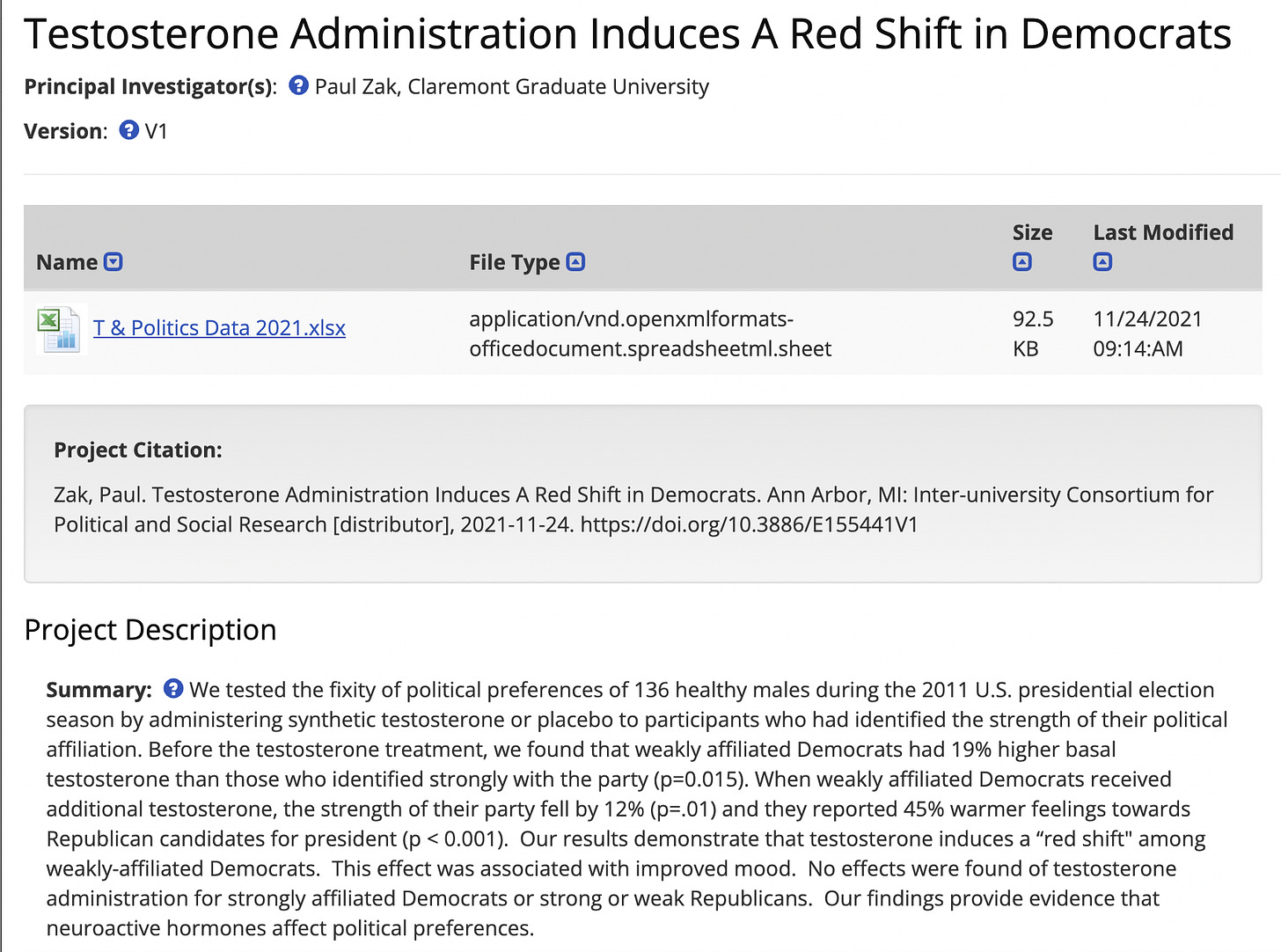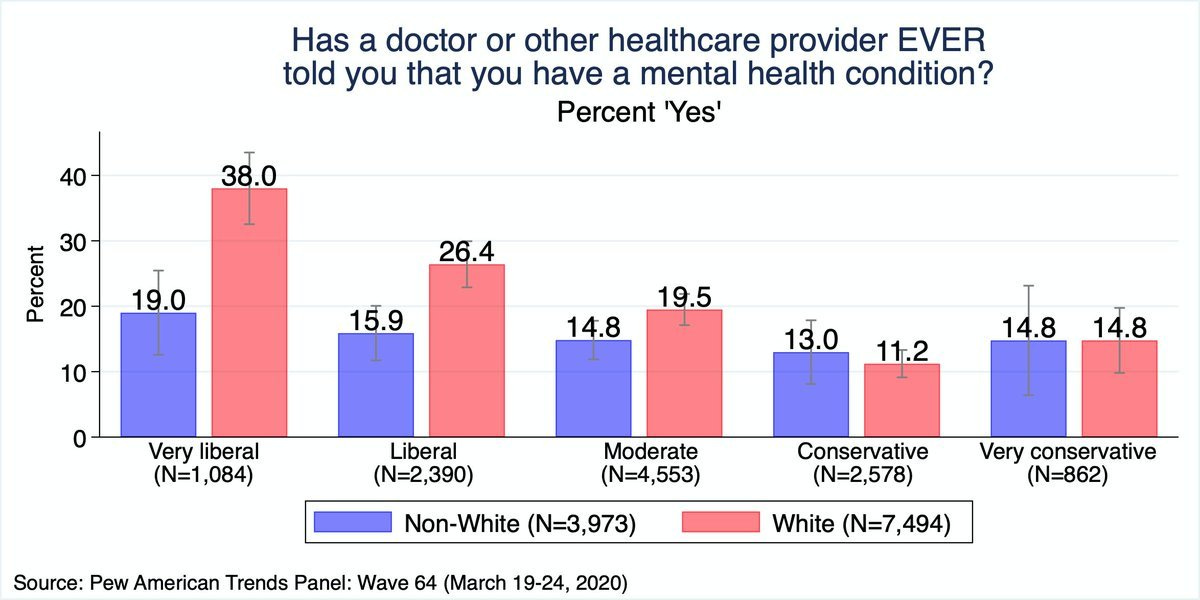Oftentimes when conversations around men’s mental health and ways to help men come up, the topic of testosterone goes unmentioned. Testosterone is a sex hormone most commonly associated with men and plays a vital role in the development of the male body, and mental health. In general, younger men tend to have higher testosterone than older men with levels peaking in younger years and gradually decreasing while a man ages as shown in the below chart.
One of the most alarming trends of the past couple of decades has been the gradually decreasing testosterone levels in the male population, especially among younger men. Testosterone levels dropped at least 20% in the last 20 years; 70-year-old men in 1987-89 had an average testosterone 100 pts higher than 55-year-old men in 2002-2004 while the average 22-year-old today, has an average testosterone level that’s approximately equal to that of a 67-year-old in 2000. In simple terms: young men today have the same testosterone levels as the old men of yesterday. Changes in male testosterone levels can have effects at various levels with people reporting both physical and mental symptoms that have been attributed to testosterone.
Physical symptoms from low testosterone range from fatigue to reduced bone density to a greater risk of dying from heart disease. Shrinking testosterone levels can also affect a man’s romantic life due to low sex drive and erectile dysfunction. Low testosterone levels are associated with poor mental health with men reporting symptoms of depression and anxiety. Cognitive decline has also been detected in men with low testosterone levels as patients have reported having difficulty concentrating and performing mental tasks. In addition to its role in health, testosterone has found a role in politics as it can be used as a variable in predicting political affiliation and other aspects of an individual’s personality such as generosity and empathy.
As shown in the above screenshot, research has noted a 'red shift' in Democrat males when they were given testosterone administrations; when this is coupled with the fact that low testosterone can be a reason why an individual is experiencing mental illness this lets us speculate as to to the viability of an emerging theory on why liberals report higher rates of mental illness.
It’s also important to note the effects testosterone can have on a man’s overall body composition. Typically, men with higher testosterone have more muscle mass and are stronger than men with lower testosterone. Often times the idea of a low testosterone male conjures up an image of the skinny ‘soy boy’ meme. Meme lords will be happy to hear there is a degree of truth to the soy boy jokes that often circulate online as a study reported:
Two scoops of pure soy protein powder (56 grams) decreased blood testosterone levels by 19 percent after four weeks. T levels increased within two weeks of skipping the protein.
Along with soy, there are other foods that contribute to lowered testosterone levels and it’s important to especially be wary of alcohol as too much drinking can also have a negative impact. In addition, a study noted that:
80% of people’s exposure to the estrogenic chemicals in plastic come from food purchase, preparation, and storage
Many of our day-to-day activities put us in contact with plastic and there are even traces of microplastics in our food and water. When one realizes that plastic materials contribute to lowered testosterone levels, it becomes clear how difficult it can be for one to raise their testosterone levels. From another study:
Men, women and children exposed to high levels of phthalates - endocrine-disrupting chemicals found in plastics and some personal care products – tended to have reduced levels of testosterone in their blood compared to those with lower chemical exposure, according to a new study published in the Endocrine Society’s Journal of Clinical Endocrinology & Metabolism (JCEM).
Despite the challenges, it is possible for men to take steps toward raising their testosterone levels. One way is simple: just get enough sleep. The CDC reports that over 1/3 of Americans are sleep deprived so simply getting enough sleep will not only help you boost your testosterone but also come with the other benefits associated with healthy sleep hygiene. As mentioned earlier, soy and other foods contribute to lower testosterone levels so it’s important to be mindful of your diet and to avoid plastic materials that also contribute to reduced testosterone. Exercise is another great way for men to boost their testosterone levels and, in and of itself, is a great hobby with great communities.
As the cycle goes: “Hard times create strong men. Strong men create good times. Good times create weak men. Weak men create hard times.” Men with higher testosterone levels are not only more capable but they are healthier both physically and mentally. Regardless of your reasoning, raising testosterone levels should be a priority since strong men are a sign of a strong society. Despite the challenges, it is possible for men to be proactive in boosting their testosterone levels by being mindful of the foods they consume along with picking up healthy habits such as working out and getting healthy amounts of sleep. Addressing the trend of decreasing testosterone levels in our male population is one step we can take towards becoming a healthier, more cohesive, and more powerful society.







Intermittent fasting is another great tool for normalizing testosterone levels.